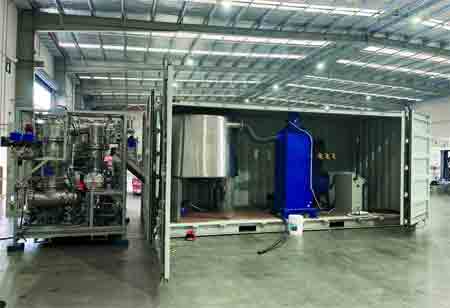The chemical sector has been revamped through globalization.
FREMONT, CA: The chemical industry is vast, with many sectors producing various products across different sections. Previously, big chemical companies, particularly the producers, had a monopoly over the market. These large companies concentrated on operational efficiency over adaptability and flexibility. Today, niche players dominate the market with a focus on consumer demand. These players have elicited incumbents to evolve by adopting digital technology at the business core and manufacturing small batches to cater to individual customer requirements, selling services, experiences, and results.
The chemical sector has been revamped through globalization. The industry dynamics have modified with new markets, competitors, and regulatory issues. This has provoked firms to shift about mergers and acquisitions to stay ambitious and propel development. It has become likely for such firms to incorporate all the operational systems into a single system.
WHAT IS DIGITAL TECHNOLOGY?
Digital technology revolves around digitized information recorded in binary combinations, which comprise only digits 0 and 1, also known as bits. They portray words and images. Digital technology allows the compression of huge amounts of details on small storage devices that can be stored and transported. Digitization fastens data transmission speeds. Digital technology has changed the way people learn, communicate and work.
ADOPTION OF DIGITIZATION
It is easy to observe the impacts and challenges arising from the changes in the industry. Chemical companies should identify new revenue streams, including outcome-based models and innovative services. To execute this, they should address an aging non-digital workforce to seek a way to enchant new talent that encompasses the digital workplace. This novel talent would be the silver lining in leveraging technology to provide core business value. Companies should employ large volumes of data to have a better version of their operations and their customers.
The future of the chemical industry no longer depends on the concept of the best product model. It is based on developing an ecosystem to enhance the customer experience.
ROLE IN MANUFACTURING
Most chemical plants continuously generate a huge amount of data but discard most of it. Instead, managers must collect and analyze the data to show ways to accomplish higher yields, lower energy usage, and more effective maintenance. These free wins can be accomplished through existing IT and process control systems. Conversely, companies that grow the kinds of data they gather would be competent to capture further advancements.
BEST DIGITAL TECHNOLOGIES AND APPROACH
- Digital technology and the data it fetches hold monumental promise for the chemical sector. These technologies play a significant role in driving business value.
- Internet of Things (IoT) – Strengthening possible gains sensors to store data from manufacturing, storage, & distribution.
- Cloud – Medium to encourage a system of record for customers and suppliers
- Analytics – To direct decision-making rooted in the business background.
- Machine learning – Add value to predictive management of operational equipment.
- Blockchain – Follow transactions for assets, products, and materials.
Technology is not just the only solution. The application of technology versus the right digital strategy in the chemical sector carries real value. This needs a concentration on executing a true digital core that allows a single system of record over the business. A corporate mindset must also embrace adaptability, agility, and innovation. It needs a customer-centric mindset and a design-thinking mindset.

